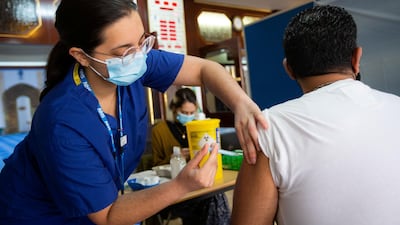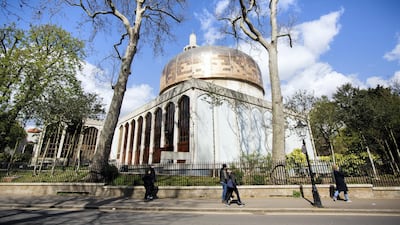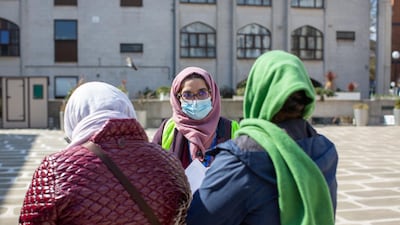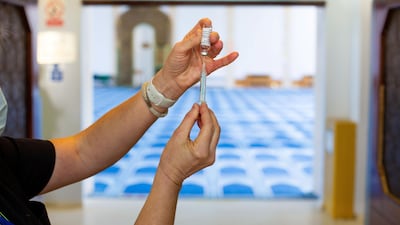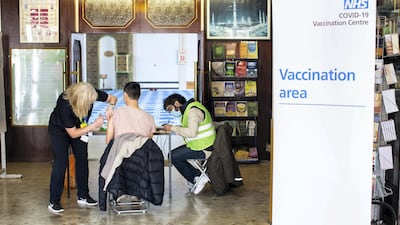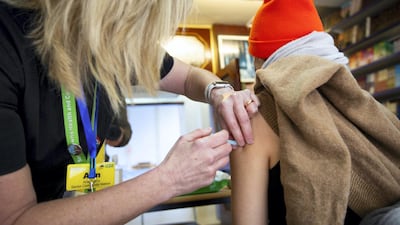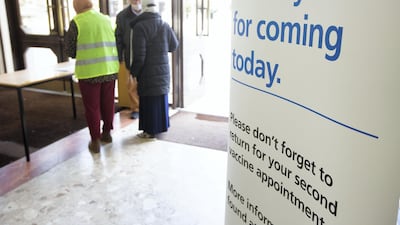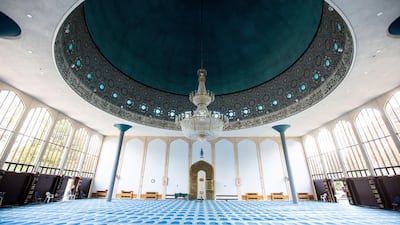On a crisp and sunny morning, people gather in a large but socially distanced circle in the courtyard of one of London’s best-known mosques.
All wear face masks but there is little else to give away that this group comprises doctors, medical students and volunteers who hold weekly vaccine pop-up clinics as part of a ‘community immunity’ effort.
With the hours ticking down to Ramadan 2021, there’s a doubled sense of purpose at the heart of London Central Mosque.
Dr Yasmin Razak is a GP and the clinical director of Neohealth Primary Care Network in north-west London. The group provides access, information and care to the vulnerable and underserved segments of society within familiar settings.
“The principle, really, is that patients need to have conversations and safe, trusted spaces with our specialist clinicians on hand to answer their questions because, as we know from the news, there are lots of fears and worries around the vaccine,” she says.
Dr Razak says it’s important to provide opportunity for people to have the private conversations they need to make an informed decision, which she hopes will be to have the vaccine.
The group has held two clinics at the mosque, near Regent’s Park, already and will hold more during Ramadan, after sunset when Muslims have broken their fast.
“There will be people who are still needing their first dose in Ramadan – we still recommend them to come forward,” Dr Razak says.
She counsels patients to drink water before and after they are inoculated to stay hydrated and avoid a fever, a possible side effect of the vaccine.
The group has run clinics in other religious sites including a synagogue, a gurdwara and a church. Dr Razak says the team want to extend their reach to the most marginalised, including undocumented migrants and homeless people.
“I do think there may be some more mistrust among certain communities, because of historical structural inequalities that exist in our system. And this is a way to overcome those barriers and challenges and really engage properly with our communities and build up those relationships that are so vital to positive health outcomes,” Dr Razak says.
Mayada Hilal
The UK’s vaccine programme has progressed steadily, with about half the population, nearly 32 million people, having had their first dose.
The success of the inoculation campaign has been helped by large inoculation clinics run at pace with upwards of 1,000 patients a day.
But Dr Razak says not everyone can navigate the online booking systems. Others haven’t been notified by their family doctor that they are eligible for the vaccine.
The group’s community-centred approach offers trusted conversations which are important in sections of society where vaccine hesitancy and misinformation are prevalent.
“I think people don’t just go away with a jab in their arm, they go away with a really positive energy about what the National Health Service can do for them and what society, when we come together, can actually do. I think that’s the beauty of the vaccine programme,” Dr Razak says of the immunity community group’s impact on public perception.

Comfort, safety and peace of mind were sentiments echoed by Ibrahim Mohamed, 41, and his wife Mayada Hilal, 39, both of whom were vaccinated at the mosque at the same time.
The couple have a son with underlying health conditions so, despite his fear of needles, Mr Mohamed, who is a manager at a supermarket chain, was happy to be immunised.
When they heard the mosque was running a clinic, they found it quick, easy and comfortable to book their appointments there.
"We were feeling safe with the NHS – we trust them in anything. But of course, to be in the mosque, it's a comfort zone for us. And it was really nice from the government to arrange something located with the Muslim community inside the mosque. I think this is really good," Ms Hilal tells The National after receiving her shot.
After a period of unemployment, Nimpuno Dewantoro, 51, found a cleaning job two months ago and hasn’t had the time to book or make a vaccination appointment with his GP. When he saw on social media that the mosque was running a clinic at the weekend, he grasped the opportunity.
That some of the volunteers speak languages other than English helps build confidence among some of those who have turned up and also creates meaningful connections with local residents.

“One of the most important parts of coming out to a community centre, rather than doing it in a hospital, is giving our community the opportunity to lead themselves on delivery of service,” Dr Razak says.
The programme also provides education, training and employment, she says. Oliver Porteous, 21, is a third-year medical student at Imperial College London and has volunteered at Dr Razak's clinic every week for months. He is normally a vaccinator but is doing the final check-out of patients at the doors to the mosque when The National speaks to him.
“I like the community pop-ups because for a lot of patients the hospital is intimidating, whereas people are calmer here and this environment helps to tackle hesitancy,” Mr Porteous says.
Some of the volunteers were themselves initially worried about taking the vaccine, before they joined the community group and their fears were assuaged. One in particular, Sarah, 18, now wants to study medicine after volunteering as a vaccinator.
Given the positive reception so far, the mosque will keep its doors open for vaccinations throughout Ramadan, when Dr Razak and her team will be back again for an evening surgery after sunset.

